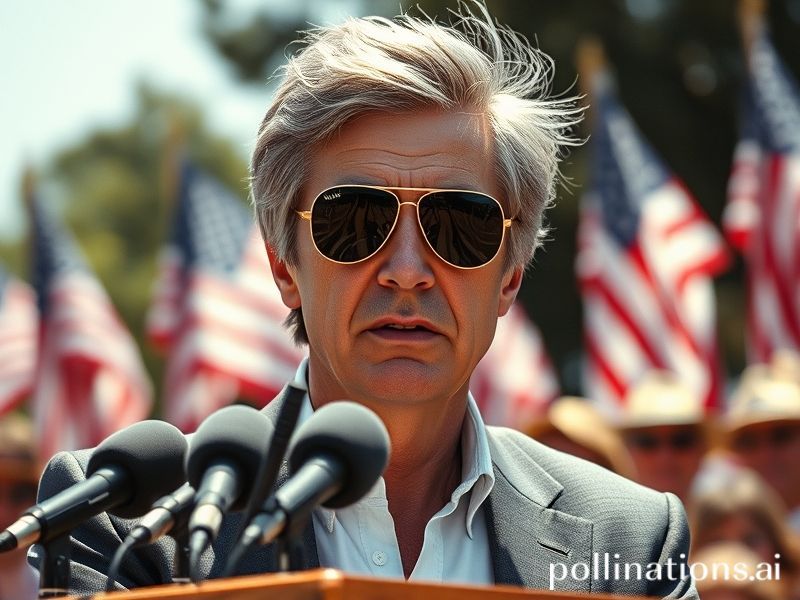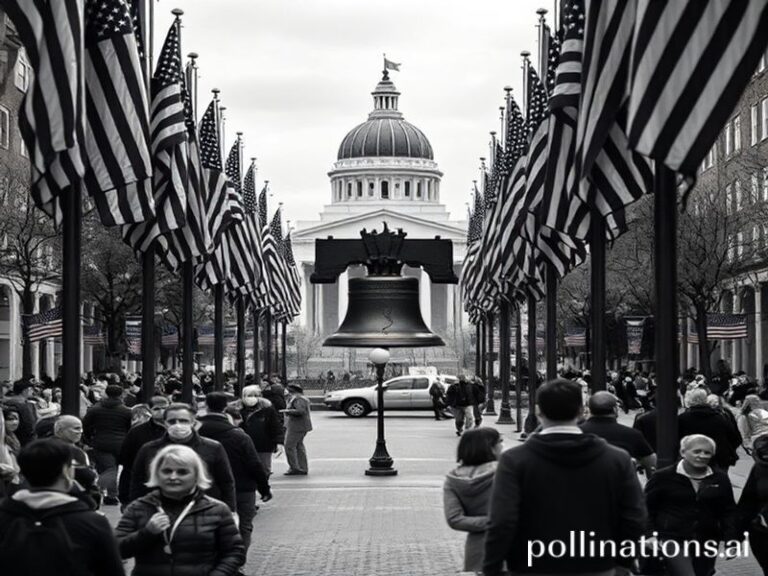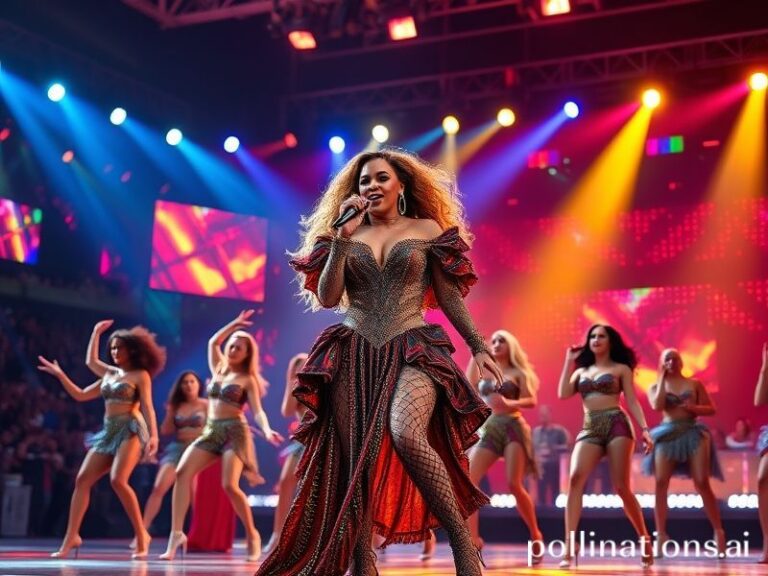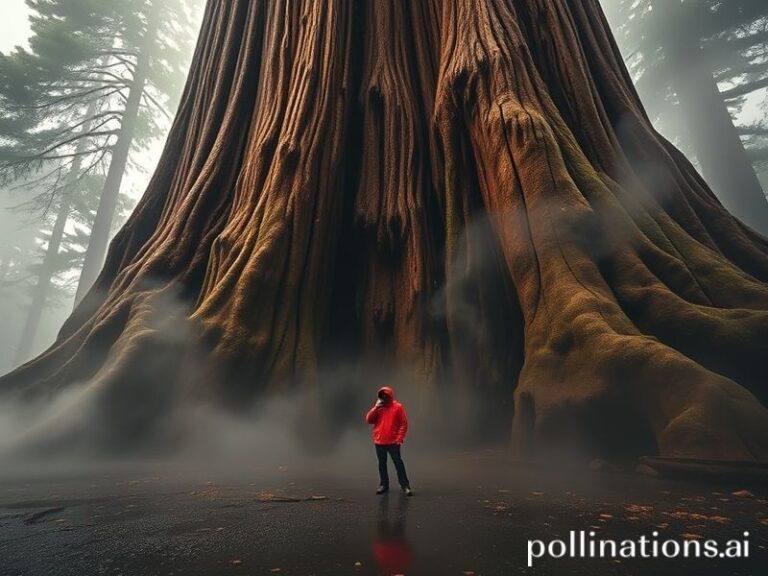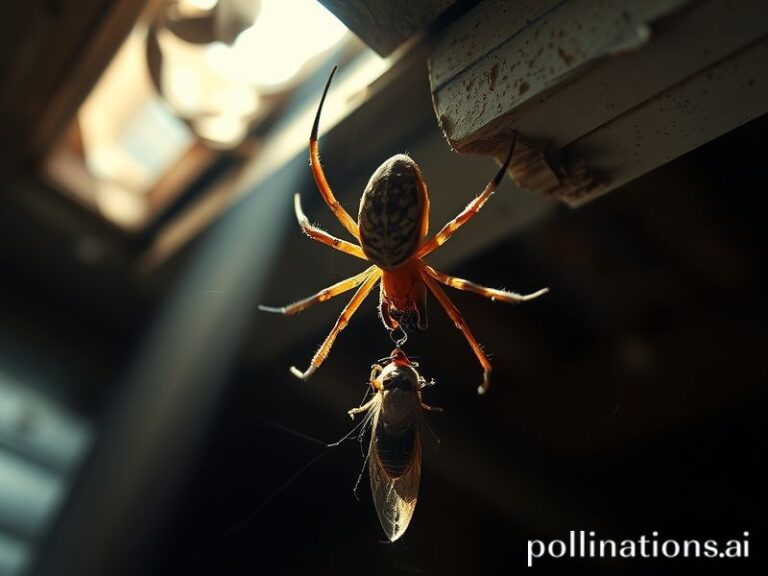RFK Jr.’s Worldwide Vaccine Villain Tour: How One American Nephew Became a Global Export of Paranoia
Robert F. Kennedy Jr. Swims the English Channel of Global Paranoia—And We’re All in the Same Boat
by “The Continental Curmudgeon,” London Bureau Chief
PARIS—From the banks of the Seine to the back alleys of Jakarta, the mere mention of Robert F. Kennedy Jr. now evokes the same diplomatic shrug you give a flatulent uncle at Christmas lunch: you can’t uninvite him, but you’d prefer he sit at the kids’ table. Once a fringe environmental lawyer in a Patagonia vest, RFK Jr. has paddled his anti-vax surfboard into the choppy waters of the 2024 U.S. presidential race—dragging the rest of the planet behind him like a reluctant water-skier.
Aristotle once claimed man is a political animal. RFK Jr. appears to have skipped the footnote warning about rabies. His conspiratorial cocktail—vaccines cause autism, 5G melts your frontal lobe, Wi-Fi is basically a CIA hair dryer—has gone viral in the original sense: spreading through WhatsApp groups from São Paulo to Lagos faster than you can say “peer review.” The result? A global uptick in measles outbreaks, a cottage industry in tinfoil berets, and a lucrative side hustle for any European naturopath with a TikTok account and a penchant for fear-mongering.
But the world’s autocrats have noticed too. In Moscow, Kremlin propagandists—who normally reserve their affection for shirtless horse enthusiasts—now amplify RFK Jr.’s speeches with the same gusto they once reserved for annexing neighbors. Beijing’s state media, never one to miss an opportunity to portray American democracy as a circus on fentanyl, gleefully retweets clips of Junior railing against “the medical-industrial complex,” conveniently subtitled in Mandarin for the 50-cent army. Nothing says “soft power” like exporting another country’s paranoia back to itself.
Europe, meanwhile, is caught in a moral headlock. Brussels officials who spent decades lecturing the Global South on vaccine equity now find themselves fielding awkward questions from Italian mothers who’d rather drink colloidal silver than Pfizer. The European Medicines Agency has drafted memos with the defeated tone of a dentist explaining flossing to a toddler. Even the World Health Organization—an outfit that once fought Ebola with actual bravery—has resorted to infographics featuring cartoon syringes wearing superhero capes. If saving humanity now requires clip art, we are in deeper trouble than we thought.
South of the Equator, the implications are darker. Kenya’s health ministry reports that misinformation traced to U.S. influencers (yes, that’s you, Bobby) has stalled polio campaigns in counties where Facebook Free Basics still counts as high tech. Latin American governments, scarred by decades of legitimate CIA meddling, now lump legitimate public-health measures together with Yankee imperialism and banana republic coups. When the son of a murdered U.S. attorney general becomes the poster boy for “don’t trust Washington,” irony files for unemployment.
And yet, there is a tragicomic elegance to RFK Jr.’s global footprint. In Australia, a country that once bragged about eradicating rubella, anti-lockdown protestors now chant “Kennedy! Kennedy!” while waving upside-down American flags—proof that nationalism is the last refuge of the geographically confused. In Tel Aviv, conspiracy-minded yoga instructors cite Kennedy’s claims about “shedding proteins” as a reason to skip booster shots, blissfully unaware that the only thing they’re shedding is credibility.
The broader significance? We’ve reached the stage where a single American surname, heavy with 1960s nostalgia, can weaponize medical hesitancy on every continent except Antarctica (penguins are still Team Pfizer). RFK Jr. is less a candidate than a cultural contagion, a walking demonstration that in the post-truth economy, charisma is fungible and facts are optional. The planet has built an exquisite global communications network only to watch it become a sewer pipe for memes about microchipped lettuce.
Conclusion
In the end, Robert F. Kennedy Jr. may never see the inside of the Oval Office, but he has already won a larger victory: convincing a sizable slice of humanity that expertise is elitist, evidence is negotiable, and irony is dead. If that sounds alarmist, remember that we live on a planet where people will swallow horse dewormer but balk at a free vaccine. Somewhere, the ghost of Jonas Salk is ordering a double scotch and muttering, “This is why we can’t have nice things.” Until the rest of us learn to treat science as more than just another opinion, the channel between reason and madness will remain perilously narrow—and Bobby will keep swimming.

